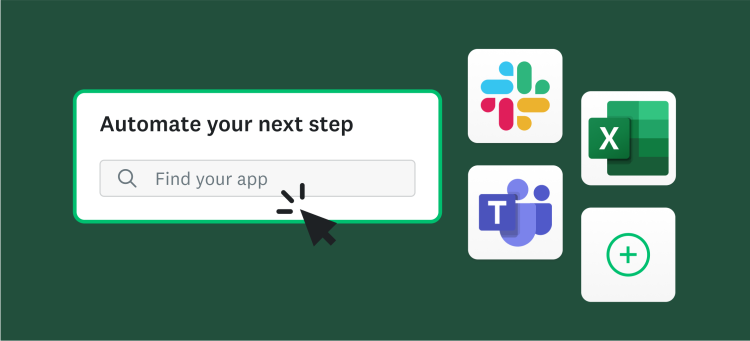This article was written in close collaboration with leaders from our Diversity, Inclusion, and Impact Groups (DIIGs) and Employee Resource Groups (ERGs).
SurveyMonkey has always been (and always will be) committed to Diversity, Equity, and Inclusion (DEI) at our company and in our community. In the wake of the murders of Breonna Taylor, Ahmaud Arbery, Tony McDade, George Floyd, and numerous others in the U.S. and the subsequent Black Lives Matter rallies around the world, we’ve realized we have to do more.
In the words of professor and activist Angela Davis, “In a racist society, it is not enough to be non-racist. We must be anti-racist.” There are two ways that a software company like SurveyMonkey can be anti-racist: one is by pursuing racial justice internally within our company and one is by pursuing it in the world at large. We’re committed to both.
We’re sharing some of the changes we’re making in the hopes of both inspiring others and holding ourselves accountable.
Note: to see all our racial justice resources for customers and partners, visit our page for racial equity.
For our employees: taking a firm stand for racial equity at SurveyMonkey
- Hiring and recruiting: SurveyMonkey currently has diversity hiring goals and recruiting strategies. In addition to these, we’re adding a referral bonus program to further incentivize our employees to help us achieve better diversity and adding recruiting staff that specialize in hiring for diversity. We’re also using a new screening tool to analyze job postings for bias.
We’re also piloting a hiring program that would require at least one female and one candidate from an underrepresented racial group to be interviewed for every open role. - Internal programs: We have dedicated Employee Resource Groups (ERGs) and Diversity, Inclusion, and Impact Groups (DIIGs) at SurveyMonkey. They are pivotal parts of our company culture and important sources of support for our employees and the business.
In an effort to celebrate and recognize the work the leaders of our ERGs and DIIGs do to advance Diversity, Equity, and Inclusion at SurveyMonkey, we’re augmenting their direct access to our leaders and decision-makers and are now offering semi-annual spot bonuses to more formally recognize that work.
We are augmenting these groups with mentorship programs to help all employees succeed and thrive. According to our recent research with LeanIn.Org, only 2 in 10 Black women working in the U.S. have a professional mentor. That’s not okay. We know that having someone to teach, advise, and advocate for you is critical for professional growth, and we will make sure our employees have access to that. - Mental health for communities of color: It has been a wrenching, emotional few months for people of color, and we know that every one of our Black or brown employees have encountered racism first hand throughout their lives. We’re offering mental health resources and expert-led support groups to help our employees process everything that’s going on and encouraging them to take time off if/when they need it knowing that they will not be penalized for doing so.
- Education: In addition to our implicit bias and inclusivity trainings, we’ve added classes for allyship and anti-racism learning resources to help employees learn without burdening our ERGs/DIIGs. (We’ve included a sample of recommended reading materials at the end of this article if you’re curious to learn more.)
In the broader world: advocating for racial justice in society at large
- Financial support: SurveyMonkey has donated $100,000 to organizations selected by our BUILD ERG (a group dedicated to our Black employees): Black Youth Helpline in Canada, the Black Women’s Health Imperative in the U.S., The African American Community Service Agency of San Jose, and The Minnesota STEM Partnership. On top of that, we rolled out a double matching program for any donation that employees make to select racial justice nonprofits. As of June 30th, that match amount was $145,000.
We’ve also added several racial justice nonprofits to our SurveyMonkey Contribute platform, which enables people to take surveys in exchange for a SurveyMonkey donation to a nonprofit of their choice. Contribute has raised over 15 million dollars for the 60+ organizations on the platform. - Free survey resources: Early last year, we published our guide to measuring diversity and inclusion and a series of free survey templates themed around DEI-related issues. We’re currently working closely with partners at The Justice Collective to develop 2 new survey templates for underrepresented minorities and vendor diversity.
We are also offering a 25% discount on SurveyMonkey products to any nonprofit that is working for racial equity. - Vendors and partners: Moving forward, we will prioritize using vendors, agencies, and partners that prioritize diversity. Not only will this help us support businesses that share our values, but it will also help foster a sense of inclusion for our employees. The more people can see some parts of themselves reflected in the people they work with, the easier it is to create connections and collaborate. We will encourage other organizations to do the same with a goal of furthering racial equity in our broader business community.
- Activism and advocacy: According to research from earlier this year, 68% of people approve of business leaders speaking out on social or political issues. SurveyMonkey will continue to be an outspoken advocate for diversity, equity, inclusion, and anti-racism.
We still have a way to go, but we’re committed to keep doing the right thing. “Race and racism is a reality that so many of us grow up learning to just deal with. But if we ever hope to move past it, it can't just be on people of color to deal with it. It's up to all of us—Black, white, everyone—no matter how well-meaning we think we might be, to do the honest, uncomfortable work of rooting it out.” -Michelle Obama
Anti-racism reading recommendations
Educational resources for allies:
- Refocus harmful conversations: Calling In: A Quick Guide on When and How
- How to think about reaching out to your colleagues: Maintaining Professionalism In The Age of Black Death Is….A Lot (Medium); Your Black Colleagues May Look Like They’re Okay — Chances Are They’re Not
- For leadership: Is Your Company Actually Fighting Racism (Harvard Business Review)
Self-care resources for Black employees:
- Black Emotional and Mental Health Collective (BEAM) works to remove barriers that Black people experience getting access to or staying connected with emotional healthcare and healing through education, training, advocacy and the creative arts
- Black Mental Health Alliance is a trusted forum for culturally competent mental health programs and direct services for African Americans and marginalized communities, including a "Find a Therapist" locator
- Therapy for Black Girls is an online space dedicated to encouraging the mental wellness of Black women and girls, offering a listing of mental health professionals across the country who provide high quality, culturally competent services to Black women and girls, an informational podcast and an online support community.
- Melanin and Mental Health Connects individuals with culturally competent clinicians committed to serving the mental health needs of Black & Latinx/Hispanic communities. Featuring the "Between Sessions" podcast - "Everything you need to know about mental health and communities of color."
- Crisis Text Line provides free, 24/7 support via text message (Text SHARE to 741741 for free, confidential crisis counseling) and is spotlighting Black mental health organizations on Twitter



